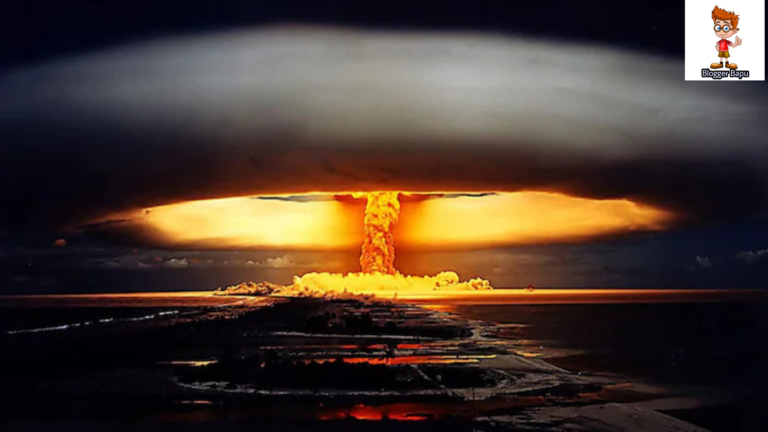Increasing global tensions, many are asking, “Is a third world war coming?” Understanding the causes and impacts of the First and Second World Wars can help us see if the world is indeed on the path to another major conflict. In this article, we’ll explore the causes of WWI and WWII, why some experts feel a Third World War could happen, and what might prevent it.
What Caused World War I (1914-1918)?
The First World War (WWI), also known as the Great War, was a devastating global conflict that took place between 1914 and 1918. It involved two main alliances: the Allies (France, Britain, and Russia) and the Central Powers (Germany, Austria-Hungary, and the Ottoman Empire).
Key Causes of World War I:
- Militarism and Arms Race: European countries built massive armies and new weapons, creating an atmosphere of fear and tension.
- Complex Alliances: Alliances meant that if one country went to war, its allies would follow, pulling more countries into the conflict.
- Imperialism and Resource Competition: European nations were competing for colonies and resources, which created conflicts and resentment.
- National Pride: Nationalism and pride led many countries to see others as rivals, especially in the unstable Balkan region.
- Assassination of Archduke Franz Ferdinand: The assassination of the heir to Austria-Hungary’s throne in 1914 triggered a chain reaction, leading to war.
Impact of World War I:
- World War I saw over 16 million deaths, with massive destruction across Europe.
- The Treaty of Versailles, which ended the war, imposed severe restrictions on Germany, causing economic hardship and resentment.
What Caused World War II (1939-1945)?
World War II (WWII) began in 1939, about 20 years after WWI ended. This time, the Allies (United States, Soviet Union, Britain) fought against the Axis Powers (Germany, Italy, Japan).
Key Causes of World War II:
- Unresolved Issues from WWI: The Treaty of Versailles left Germany bitter and economically weak, which fueled anger and a desire for revenge.
- Rise of Dictators: Economic struggles in Germany and Italy led to the rise of dictators like Hitler and Mussolini, who promised to restore their countries’ power.
- Aggressive Expansion: Germany, Italy, and Japan started taking over other regions, feeling unstoppable when no one intervened.
- The Great Depression: This worldwide economic collapse made people desperate and led them to support extreme leaders and ideas.
- Failed Attempts to Avoid War: Countries like Britain tried to avoid war by giving in to some of Hitler’s demands, but this only encouraged him to push further.
Impact of World War II:
- WWII was even deadlier, with an estimated 70-85 million deaths.
- In response, the United Nations was created after WWII to prevent future global conflicts.
Why Does It Feel Like a Third World War Might Be Coming?
With issues like global power struggles, economic uncertainty, and rising nationalism, some situations today seem similar to those that led to WWI and WWII. Here are key reasons why some believe a Third World War could be possible.
1. Rivalries Between Superpowers
- Tension Between the US and China: The United States and China are competing for global influence over technology, trade, and military power. The rivalry resembles some of the great-power struggles of the past.
- Russia’s Aggressive Actions: Russia’s recent actions in Ukraine and tensions with NATO remind many of the expansionist moves seen before WWII, raising concerns about escalation in Europe.
2. Economic Uncertainty and Resource Shortages
- Global Economic Struggles: Rising inflation, high debt, and uneven wealth are causing political and social unrest in many countries.
- Competition for Resources: With growing populations and climate change, resources like water, energy, and food are becoming limited, which can lead to conflicts.
3. Rise of Nationalism and “Us vs. Them” Mentality
- Nationalism is increasing in many countries, where people see others as threats. This mentality can make countries less willing to cooperate and more prone to conflict.
4. Advances in Technology and Cyber Warfare
- Cyber Warfare: Modern warfare increasingly involves cyber-attacks that can disrupt economies and essential services. Unlike past wars, cyber warfare doesn’t happen on a battlefield, making it a different kind of danger.
- New Weapons and AI: Drones and AI-driven weapons add a new dimension to warfare, allowing countries to strike quickly and possibly leading to misunderstandings.
5. Weakening of International Organizations
- The United Nations’ Limitations: The United Nations was formed to prevent wars, but it sometimes struggles to manage today’s conflicts. Without effective peacekeeping, small conflicts can grow larger.
Conclusion: Are We Heading for a Third World War?
Although there are signs of global tension, there are also reasons to believe a Third World War can be avoided. Global economies are highly interconnected, and the devastating power of nuclear weapons serves as a strong deterrent. World leaders today have also seen the horrors of past world wars, which may help encourage diplomacy and cooperation.
To avoid a Third World War, countries must work together, solve resource issues, and reduce nationalism. By learning from past wars, we can prevent conflict. Planet Earth is our unique home in the Solar System, and it’s our responsibility to protect it for future generations.




